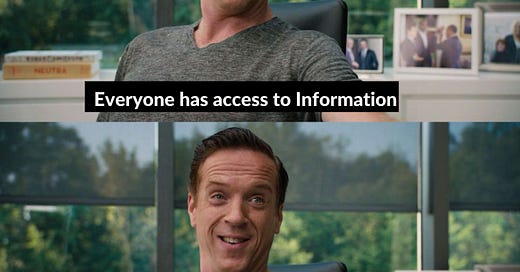DeFi Flash Loans the New CDOs, Meta's $10B bet on the Metaverse, Elon Musk Buys Twitter
Flash Loans is the new Gold Rush, Meta's first Retail Store, Elon pays $40B to buy Twitter

By Terrence Hooi
Chief Investment Strategist
The below is the opinion of the author. This should not be considered as investment advice. Investing involves the risk of loss and returns are not guaranteed.
"The first step is to establish that something is possible; then probability will occur." —Elon Musk
Here are your three stories today:
1) Elon Musk buys Twitter with $40B
Musk plans to buy Twitter with a mix of cash and debt with $13 B from a group of banks, $12B in loans with Tesla stock as a collateral and $21B in cash.
Musk plans to pay $54.20 per share of Twitter, valuing the company at ~$44 billion.
Transaction expected to close this year with Twitter’s board unanimously approved the transaction
Among other things to reshape Twitter including removing spam bots, adding an Edit button and adhering to freedom of speech principles.
Musk said in a statement he looks forward to “defeating the spam bots, and authenticating all humans,” among other plans for the social network.
Singular’s Take: Although we wrote about Elon Musk’s possibility of taking over Twitter’s board earlier this month, Musk declined to join Twitter’s board. However, we believe Musk buying Twitter could solve the current social media platforms policies in the near future.
2.) DeFi Staking Is On The Rise
If you can recall how The Global Financial Crisis in 2008-09 and also movies like The Big Short has taught us lessons things can go terribly wrong when leverage builds in multiple layers of wrapped financial products like collateralized-debt obligations and CDOs squared. Now with the power of DeFi, individuals seems to be creating their own CDOs at their fingertips, creative users are seeking ways to maximize their exposure to staked ether earning up to 35-50% APY.
The amount of Staking measured by Total Value Locked or TVL has increased by 11x to $207Bn since 2021 according to DeFiLlama. With DeFi, anyone can lend, borrow, send, or trade blockchain-based assets using easily downloadable wallets without having to use a bank or broker.
Now, we are seeing that happening in the DeFi World where Ethereum is being borrowed so they can run their own validator node or stake through a service provider such as Coinbase, Kraken, or Lido.
As Ethereum transitions to Proof-of-Stake (POS) Deposits Into Ethereum’s New Proof-of-Stake Network Are Accelerating as The Merge Date Nears.
Aave, one of the largest DeFi Lending platforms is seeing deposits account for roughly 25% of total stETH supply.
Ether holders wishing to participate can either run their own validator node or stake through a service provider such as Coinbase, Kraken, or Lido with their borrowed stETH.
Users have levered their exposure to the max on other platforms like Lido’s liquid staked so earn 3x the native-staking Annualized Percentage Yield (APY). Think about Spending just $1 and getting a loan of $3 while earning 35-50% APY.

Singular’s Take: We are seeing an inflection point where staking in DeFi and Web3 leverage seems to be building rapidly that could pose a systemic risk to crypto. Platforms like Lido or Aave have to be aware of the importance of its role in the staking ecosystem allowing anyone to create their own version of CDOs in this DeFi gold rush. DeFi lending platforms will need to intensify efforts to manage, monitor, and control risk, for example, by placing limits on borrowing power.
The good part with public blockchains will be transparency where everything can be tracked on-chain giving the investors the ability to assess risks, and mitigate over-exposure unlike the traditional finance world.
Singular’s Action: Knowledge is power ! Learn how DeFi Flash Loans work and ride this little-known trick that makes 5x more Money than Bitcoin. Submit your questions here before our upcoming Webinar.
3) Meta Announces First Burlingame Retail Store
This week, Mark Zuckerberg announce its first retail store located in Burlingame near Meta’ Reality Labs HQ as he said in a statement: “The best way to understand virtual reality is to experience it.”
“Meta Store” the first retail store to provide “hands-on experience” on products such as Portal devices, Ray-Ban Stories, and the Quest VR Headset.
Meta’s move to provide Metaverse hardware is a move we believe enhances the experience for users on top of Meta’s online shopping store.
Singular’s Take: Meta spent $10B in 2021 more than 5x the amount they invested in Oculus 3 years ago and Mark Zuckerberg seems to be going all in on the Metaverse since last year. The move to collaborate with DTC brands like RayBan and Quest could help Meta have a first over advantage in VR goggles, AR smart glasses and upcoming yet-to-be released products.
Meme of the Week








